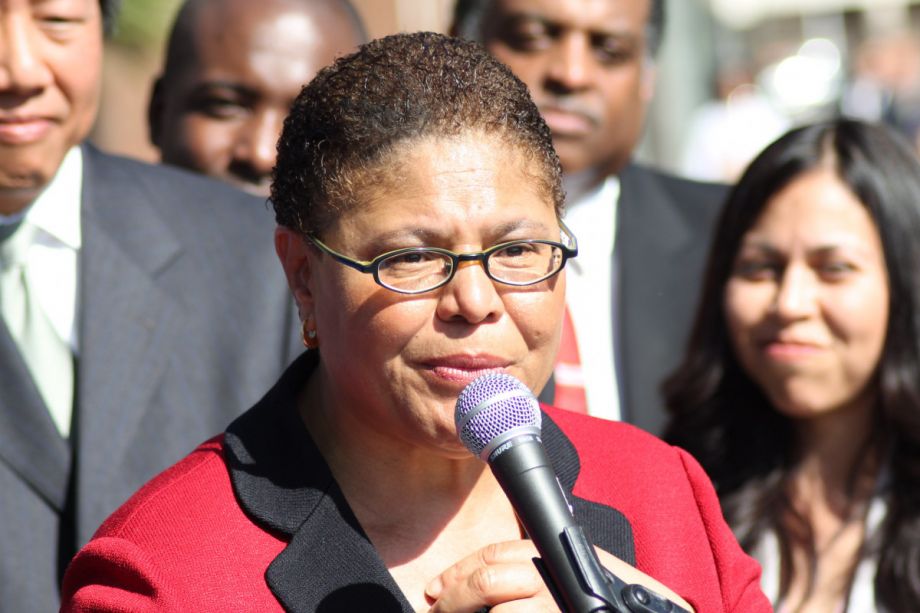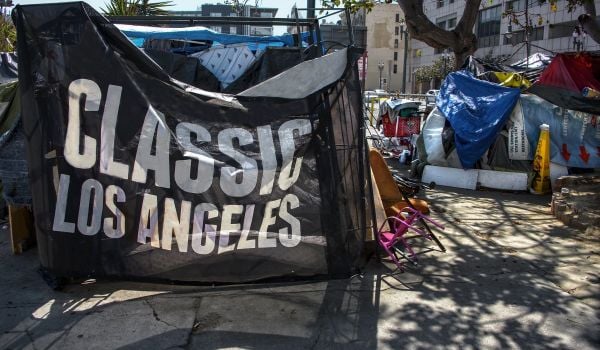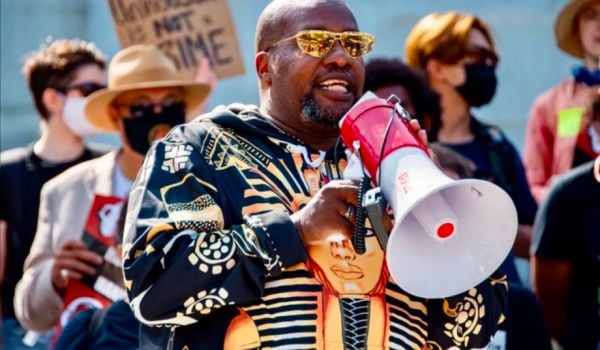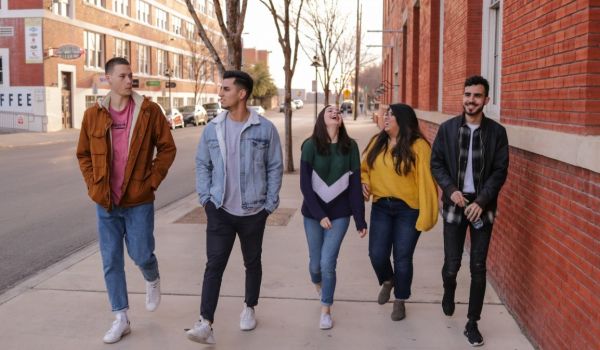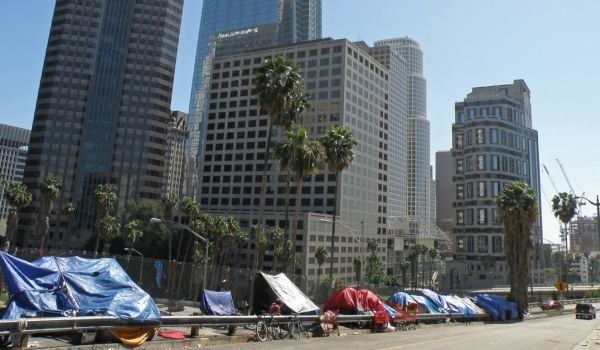Mayor Karen Bass Declares Homelessness State of Emergency
Los Angeles’ newly-elected mayor Karen Bass was sworn into office on Monday and officially declared a state of emergency on homelessness, CBS News Los Angeles reports. She outlined a broad vision but provided few hard details on what that would mean. Bass said she would address homelessness with “the emergency management way of doing things,” using a coordinated model akin to addressing fires or earthquakes.
Bass pledged greater coordination of shelter services, faster housing construction and that she would work to bring people indoors faster, and promised an upcoming executive order initiating a program called “Inside Safe” for “tackling encampments and street homelessness” which would “restore our public spaces.” She said this would lean on a “strategic, proactive rapid housing” model. Her administration will lease apartments and motel rooms across the city, she said, and people accepting motels prioritized for permanent housing.
She also referenced the newly-passed Measure ULA, a so-called “Mansion Tax” on property sales above $5 million that will go to housing and homeless services. Bass said Measure ULA funds would be spent more efficiently than Measure HHH, another voter-passed housing bond that has been criticized for building supportive housing too slowly to meet the demand.
Mayor Adams Unveils Housing Construction Initiative
New York City Mayor Eric Adams unveiled a raft of new housing policies intended to build 50,000 units of housing over the next decade, with a “moonshot” goal of 500,000 units. (His predecessor had promised to “build or preserve” 400,000 units, but only made it to about 200,000 by the end of his eight years.) The initiative is the result of a task force Adams convened in June, which produced a report announcing over 100 changes.
The Adams administration says the changes will cut administrative red tape by 50% when it comes to environmental reviews, building permitting and land use approvals – three major hurdles to construction in the city. Adams plans to exempt small projects from environmental review, revise how the city analyzes the traffic impact of proposed projects and create a single point of contact for construction permits (rather than spreading it across agencies), among other more bureaucratic changes.
Adams also plans to change citywide zoning to reduce parking requirements and broaden the amount of different types of housing that can be built in the city. Along with these changes, Adams announced a plan to rezone a 46-block stretch around four new Metro North stops in the Bronx to allow for more residential and commercial construction, as well as a manufacturing area spanning Crown Heights and Bedford Stuyvesant in Brooklyn. Council members for both of the planned rezonings approve the mayor’s plan, according to City Limits, though one assemblymember and some community members in the Bronx said they weren’t engaged at all, according to The City.
San Francisco To Hold Hearing On SRO Evictions
San Francisco supervisor Dean Preston will hold a hearing in response to an August San Francisco Chronicle investigation that revealed hundreds of formerly homeless tenants were being evicted from city-owned supportive housing SROs (single room occupancy units).
According to the Chronicle, tenants were being evicted for owing back rent, disruptive behavior and for minor offenses, like installing shelves. Yet these SROs were meant to provide social support for people with impairments who have trouble living on their own. According to the Chronicle, “people are typically forced out of SROs for the same issues that qualified them for supportive housing in the first place: poverty, mental illness, trauma and inability to care for themselves.”
Preston said the hearing will help gather data on which nonprofits providing management in the program are evicting people at higher rates, as the Chronicle investigation found the city did not have uniform guidelines for agencies they contracted with when it came to eviction.
This article is part of Backyard, a newsletter exploring scalable solutions to make housing fairer, more affordable and more environmentally sustainable. Subscribe to our weekly Backyard newsletter.

Roshan Abraham is Next City's housing correspondent and a former Equitable Cities fellow. He is based in Queens. Follow him on Twitter at @roshantone.



